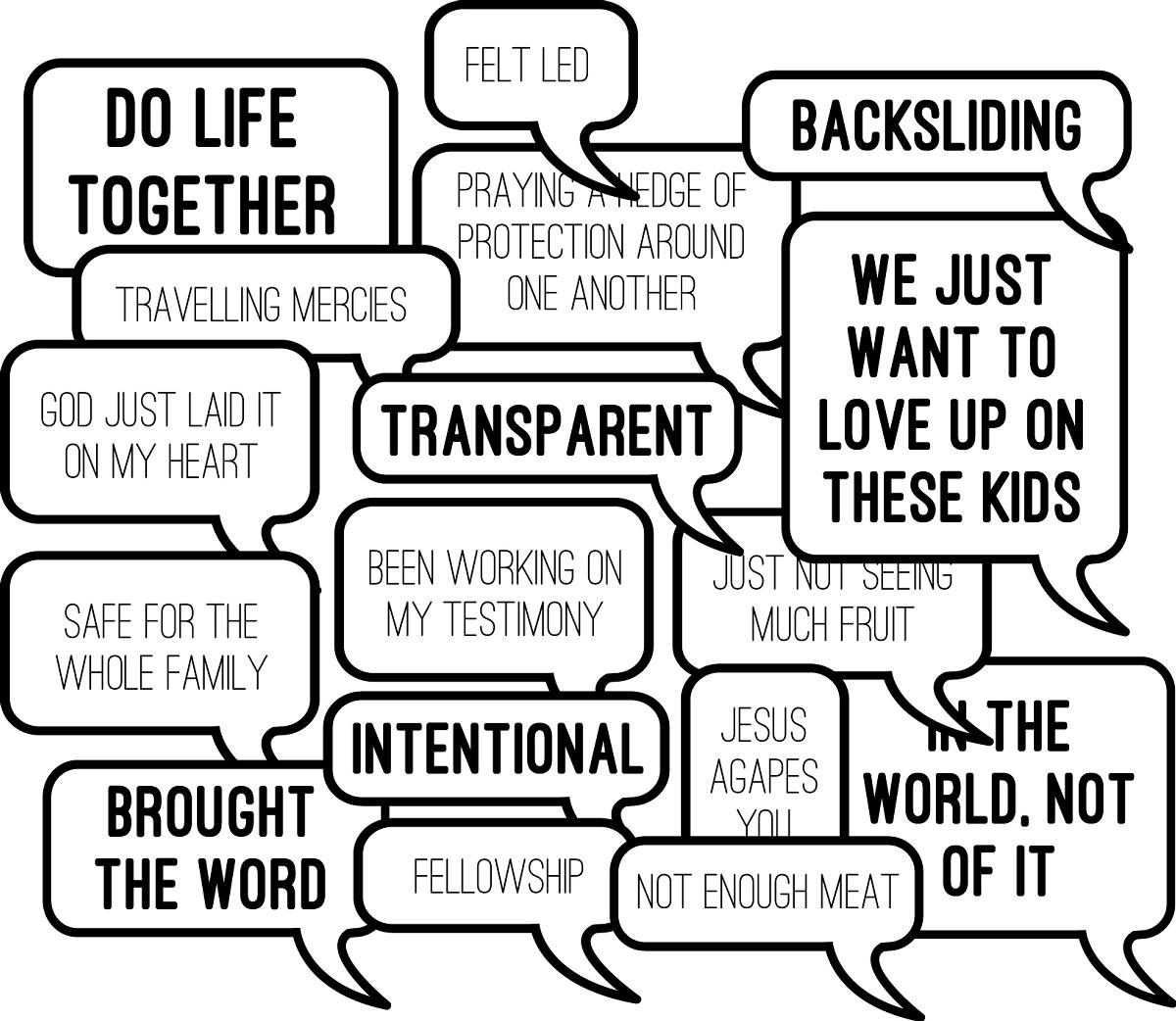
How do you “do life together?” What does “praying a hedge of protection around one another” look like? And when someone says, “we just want to love up on these kids,” does that differ from loving down on them?
The average Biola student, as well as the average Christian, hears this kind of language almost every day, often without giving it a second thought. We throw around words and phrases that have been around so long that we do not even know what they mean or where they came from.
DRAINING WORDS OF THEIR MEANING
Does anyone actually know the definition of “travelling mercies” and how they differ from normal mercies? We as Christians need to reexamine phrases categorized as “Christianese” and seriously consider the effect they have on the church body, as well as the secular community that surrounds us.
When we are asked to pray or participate in a meaningful conversation, grasping at familiar “Christian” phrases without thinking about their actual meaning or implications becomes a common mode of communication. There are many different ways of explaining yourself, but to throw in that God “laid something on your heart” or that you “felt led” to pray for someone every time you talk feels haphazard. Continued, careless use of these kinds of phrases drains the words of their rich and important meanings.
This verbal ambiguity and complacency leads to empty words and consequently empty relationships. 1 Thessalonians 5:11 and Ephesians 5:18-21 tell us that the saints are tasked with the building up of the body of Christ, which occurs in part through the words we use to speak with each other. Therefore, we need to understand what we say and why we choose to say it.
GETTING TO THE POINT
We often say things like this in order to appear more spiritually put-together. At a well-known Christian university this kind of spirituality seems like a requirement. Instead of seeming well composed and wise, we usually end up looking pedantic, foolish, and a lot like the hypocrite in the Sermon on the Mount who uses big words in prayers on the street corner.
We constantly hear about our responsibility to share the gospel with those who have never heard of Jesus or with those who choose not to follow Christ. But how can we provide thoughtful and empowering discussion in Christ’s name if we employ phrases like “Jesus agapes you?” Such jargon only alienates people outside of the Christian community and makes us seem like even more of a members-only culture. Like learning to speak a language in a foreign country, we too need to monitor our slang and jargon so that our message sustains its power and is easily understood by sub-cultures that do not know Christ.
“Loving on” people, for example, sounds weird and unnecessary. Next time, simply “love” people. We are not sheets of Saran wrap, we do not need to say we are “transparent.” We can simply be honest. Modeling your attitude after scripture when you pray is excellent, but trying to sound like the book of Psalms is not our goal.
So get to the point, Christians. Instead of letting these empty Christianese words wear out our relationships and the important message we try to convey, let us challenge ourselves to think more directly and speak more plainly.







